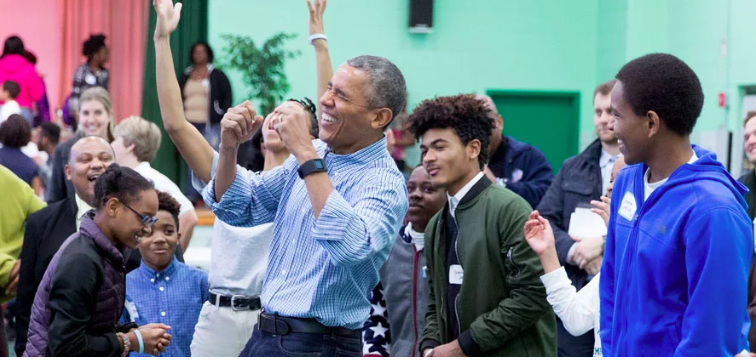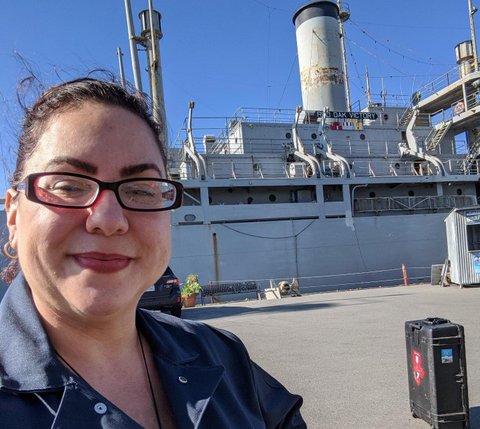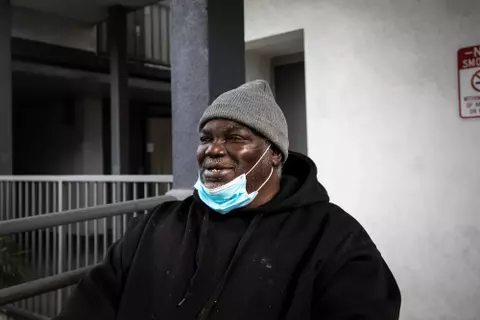
15 Jan Obama Foundation Names Richmond as a ‘Seed Community’

Obama Foundation Names Richmond as a ‘Seed Community’
By Abené Clayton
Richmond is one of five communities that will receive a $50,000 grant and support from the Obama Foundation to expand and create programs that “measurably improve the lives of boys and young men of color,” according to the My Brother’s Keeper Alliance (MBKA) website. MBKA was founded by former president Barack Obama in 2015 to deal with “persistent opportunity gaps” facing boys and young men of color on a national scale.
“A lot of our systems are not set up to adequately and meaningfully support boys and men of color,” RYSE Center co-founder Kanwarpal Dhaliwal said. “There’s no analysis or accountability by the systems that are actually creating the conditions of harm.”
In Richmond’s middle and high schools, black students are more likely to be suspended from school than their white peers. In 2016, West Costa Contra Unified School District rolled out the Positive School Climate Policy and other initiatives to address this disparity. Still, according to 2018 suspension rates, black students’ suspensions have increased. Suspensions contribute to high truancy rates, and truancy is directly linked to involvement in crime as a juvenile and adult, according to the In School and On Track report published by the California attorney general’s office.
Richmond’s Office of Neighborhood Safety (ONS) and The Hidden Genius Project in Oakland round out Richmond’s cohort of youth development organizations recognized by MBKA. Both organizations mentor black male youth: ONS through violence interruption, while The Hidden Genius Project trains high school students in computer engineering and tech entrepreneurship.
Together, the groups will rally regional school administrators and fellow youth development organizations to examine how local and statewide policies put young black and brown boys and men at a disadvantage.
“It’s actually not young people’s responsibility to figure out all the solutions for how they are experiencing the world,” Dhaliwal said. “It’s our responsibility to understand as best we can to respond to what’s helpful and what’s not.”
In addition to healing, crisis intervention and mentorship work, RYSE and The Hidden Genius Project emphasize using a “gender justice framework” to examine how toxic ideas of manhood, misogyny and homophobia harm whole communities.
The MBKA award winners were announced in November 2018 and specific programs and workshops on issues like homophobia and misogyny have yet to be announced. However, Dhaliwal describes RYSE as a racial, gender, and queer justice organization, and says as the year goes on, gender justice will remain a part of the conversations around empowering young black and brown men.
“This ensures that young men/boys can explore, and dream, and consider their identities,” Dhaliwal says of current and potential programs. “They’re given the space to do that but not at the expense of young women and girls.”
“We’ve had so many moments where we’re being reminded of the danger of toxic masculinity,” said Dr. Brandon Nicholson, executive director of The Hidden Genius Project, referencing recent conversations around sexual abuse brought on by the Surviving R. Kelly docu-series.
“Where are the opportunities for ally-ship? Where do people fall down? Where was our complicity?” Nicholson said. “Having those conversations means people of other gender identities and backgrounds are going to be better for it.”
Additionally, staff with ONS say their work will focus on preparing young men of color to thrive in their schools and communities. One staff member says they’ll do this by reaching out to young men of color who are at risk of becoming the victim or perpetrator of a violent crime. The group helps participants work through conflicts and understand how to maintain healthy relationships with their families, and folks throughout their communities.
“We have the ability to function in highly dysfunctional situations, and highly volatile situations,” ONS staff member Sam Vaughn said of the organization’s reputation throughout the city. “We truly believe that young people are the solution to the problems that we’re all seeking to solve. And we partner with them.”
Richmond’s work with MBKA began in 2014 when city council member Jael Myrick accepted then-president Obama’s call for cities to come up with MBKA action plans. The 2016 plan centered on helping boys of color succeed through literacy, mental health services and job opportunities. Together, the cohort hopes to transform narratives around young black and brown boys and help inspire new community organizers.
“In the field of youth development, young people of color, in particular, are seen as a problem or deficit,” Dhaliwal said. “So, here’s an opportunity and obligation to shift the frame.”
This year, The Hidden Genius Project will hold their 15-month “immersion intensive,” when staff will mentor young black men in things like computer science and entrepreneurship. RYSE Center will serve as one of the program’s sites. Throughout 2019, Dhaliwal hopes to connect schools and regional nonprofits around the collective goal of building pathways for young men of color to succeed.
“We’re dealing with different populations,” Vaugh said. “All have been mistreated, all have been pushed to the side and given no real resources. Every bit of extra funding we get just opens up our bandwidth to touch more young people.”
From Feb. 18 to 20 the groups will meet during MBK Rising! at Oakland’s Scottish Rite Center where Obama will attend to highlight the people and organizations working on behalf of young men of color.
The Hidden Genius Project Intensive Immersion Program is open to 9th to 11th grade students and applications are due Feb. 17. To learn more, visit hiddengeniusproject.org/apply.






No Comments